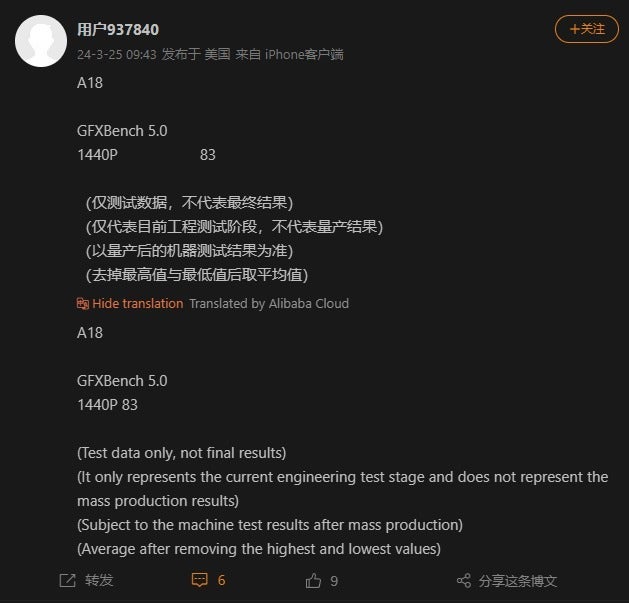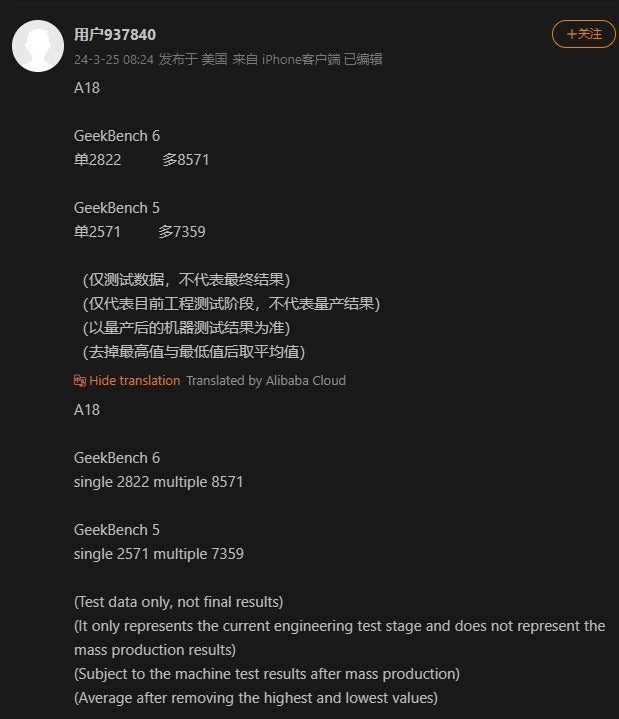The new A18 processors are reportedly in the trial production and testing phase at the TSMC foundry, and will use its enhanced 3nm N3E process node. The second generation of a production node typically brings stability and power draw improvements, rather than some grand performance boost, so Apple might indeed be using it to add features instead of clock speed.
Apple A18 benchmarks
The posts on Weibo have subsequently been deleted, but a few snapshots detail that these are based on pre-production versions and reference boards, so Apple may decide to tune the performance/feature/power draw ratio further for the retail iPhone 16 handsets.
The first pass shows somewhat boosted results that show that the A8 processor may be much faster than the current A17 crop. The pass doesn’t specify the clock speed that the chipsets were running on, but the second suite of A18 benchmarks posted shows a more credible performance score that is roughly in line with the current generation.
iPhone 16 Pro graphics


Teased Apple A18 GFXBench score
Sure, this would bode well for all the gaming chops of the iPhone 16 Pro and iPhone 16 Pro Max. Above all, however, it may again put it firmly ahead of Qualcomm’s flagship Snapdragon processor series that has been catching up to Apple in the GPU department lately.

